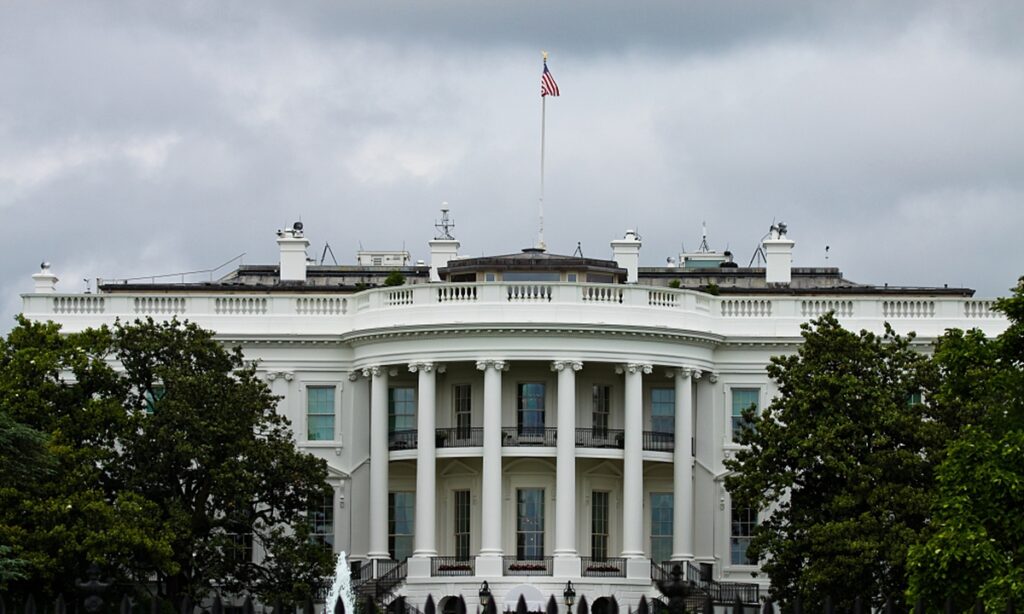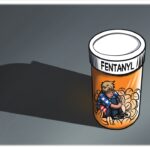A US Coast Guard ship sailed through the Taiwan Straits after US Secretary of State Antony Blinken completed his first trip to China since assuming office. Soon after, President Joe Biden once again viciously attacked the Chinese leader.
On Friday, the US charged Chinese companies and individuals for the first time for “trafficking chemicals used in manufacturing fentanyl,” and used “sting operation” to entrap Chinese citizens in third countries. In the US Congress, an investigation is underway into the alleged use of forced labor by Chinese online shopping companies in the US, such as Temu.
House Foreign Affairs Committee Chairman Michael McCaul recently expressed his “disappointment” with Blinken’s trip to Beijing……
This is not a good time for improving US-China relations.
No matter how Blinken behaves, a heavy black shadow floats above his head. It is made up of three shadows.
The first weight is the shadow of former president Donald Trump, who vowed to capture the coming election victory. Diplomacy is a continuation of domestic affairs, and any adjustment in White House’s policy toward China must consider the presence of Trump and the voters behind him.
At home, one of the top political priorities for Biden and the Democrats is to keep Trump down, whether by putting him in jail or out of the race. Americans are already talking about whether Trump will govern from prison. It may seem like a joke, but American columnist Nicholas Donabet Kristof brings it up and thinks it is highly likely. This uncertainty determines that Biden is unlikely to make any positive adjustments to US-China relations.
The second shadow is the US Congress. On June 22, a resolution accusing Biden of “dereliction of duty” in dealing with the US-Mexico border was passed. The White House is having a hard time twisting the thumbs of Congress, and smart campaigners will not create a violent confrontation within Congress over US-China relations at this time.
The China narrative in US electoral politics has not abated in recent years, but has created a vicious cycle. Each round of election comes with another wave of China curbs. With the next election on the horizon, the White House is well aware that any small change could lead to a barrage of attacks from its opponents.
The third shadow is the Biden administration’s strategy toward China. Washington has shifted from being the policymaker to the executor of US policy toward China. Biden has continued Trump’s China policy, making it more systematic, strategic, and long-term. The China strategy is a “sub-strategy” that serves the primary US strategy of “making America great again.” China is a major competitor of the US, a “whip” and “complementary force” for Washington to boost the economy, bring back industries, increase employment, and occupy the top of the high-end.
The key now is to ensure the stable deployment and implementation of this strategy, so the face-saving work still needs to be done. At least Blinken’s trip to Beijing meets the needs of China-related interests, and also reduces the complaints of allies who are hesitant to “decouple.”
However, the paradox is that as long as Washington’s grand strategy moves forward, there will be a constant stream of policies to sanction Chinese companies and Made in China products in the future. It will be necessary to create tensions with the help of the Taiwan question, the South China Sea, human rights, security, and other issues to reinforce the US-centered and dominated supply chain, industrial chain, and security systems.
Kissinger recently made a pessimistic prediction. He claimed that if the US continues with its current basic strategy of great-power competition, China and the US will be on “the top of a precipice.” Military conflict is possible, and the US must make changes.
This basic strategy is formulated by the current administration and is in the stage of comprehensive reinforcement advancement. It is in line with the needs of domestic politics, is one of the few bipartisan consensus, and is crucial for Biden to retain the votes of his base. How could adjustments be made?
Blinken did not come to China to “seek peace,” but at best to patch things up. However, the stitching of this patch is so loose that it might fall off soon.
(Global Times)



